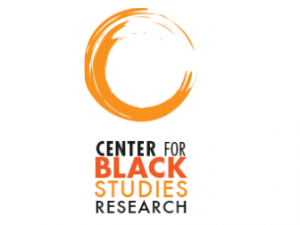In our current political climate, civil discourse often takes a backseat to more polarized — and polarizing — rhetoric built not on the exchange of ideas, but on “I’m-right-you’re-wrong,” winner-take-all arguments.
A panel discussion presented at UC Santa Barbara’s Center for Black Studies Research seeks to explore the histories of the Black Radical Tradition, to think collectively about ways to combat anti-Blackness, and to consider what the future of Black resistance — broadly conceptualized — looks like, and to do so within the parameters of thoughtful, respectful dialogue.
“Living in the Black Radical Tradition: Conversations” will take place Friday, Feb. 21, from 11:30 a.m. to 2 p.m. in the Dolores Huerta Conference Room, 1623 South Hall. The event is free and open to the public.
“I speak with undergraduates and what I hear them saying — and the experiences they’re having — seem remarkably similar to what Black people have been saying since time immemorial in this country,” said Terrance Wooten, an assistant professor of Black studies and the panel’s moderator. “
The term “Black Radical Tradition” was coined by the late Cedric Robinson in his 1983 book, “Black Marxism: The Making of the Black Radical Tradition. Robinson, who died in 2016, was a professor of Black studies at UC Santa Barbara and director of the Center for Black Studies Research.
“When Cedric Robinson conceptualized the term ‘Black Radical Tradition,’ it was grounded in resistance to historically oppressive environments,” said Sharon Tettegah, the center’s current director and the conceptual architect of “Living in the Black Radical Tradition: Conversations.” Tettegah was a teaching assistant in the Department of Black Studies at the time Robinson was deparment chair.
“Black people are still resisting and fighting against oppressive environments,” she continued. “Some things change, while most stay the same. I hope participants will learn and understand the Black Radical Tradition based on events and experiences of yesterday, today and tomorrow from scholarly and grass roots perspectives.”
It was with the past, present and future in mind that Tettegah identified the panelists for “Living in the Black Radical Tradition.” She wanted to bring together a group of people who had lived, experienced and carried on the Black Radical Tradition.
Wayne Darbeau, for example, a senior executive and corporate coach, was a participant in the African Literature Association conference that took place at the University of Florida in 1980. Devoted to defining the African aesthetic, the conference featured an historic meeting of renowned African writer Achinua Achebe and American literary great, James Baldwin.
Gregory Fobbs is the principal of the largest high school in Hayward, California, and a community member with knowledge and experience involving Nairobi Community College in nearby E. Palo Alto. The College was part of a movement for ethnic minority groups in the United States to have dedicated academic programs to train themselves in the theory and practice of liberation, resistance and revolution.
Debra Taylor, who was raised in Tuskeegee, Alabama, is the goddaughter of Rev. Ralph Abernathy and his wife, Juanita. When Martin Luther King, Jr. was assassinated in 1968, Abernathy succeeded him as leader for the Southern Christian Leadership Conference. The African American scientist and educator George Washington Carver was a professor of Taylor’s father, and Taylor has said she considers Carver to be her spiritual grandfather.
Eric Ross is a broadcast and chief engineer, activist and filmmaker who has documented community events in Oakland, California, for the past 45 years. Through his media work, he has preserved historically important speeches, community events and the lives of Oakland's Black communities. His archives include more than 300 hours of video footage that tells the story of his community’s legacy.
Sundiata Cha-Jua, an associate professr in the African American studies and history departments at the University of Illinois, is a revolutionary Black nationalist who combines a Marxist analytical approach with a conmittment to the independence of the African American Nation.
Other panelists for “Living in the Black Radical Tradition” include Jaime Amparo Alves and Jean Beaman, assistant professors in the UC Santa Barbara departments of Black studies and sociology, respectively; and Matt Richardson, an associate professor in the Department of Feminist Studies.
Click the link below to read the full article.







